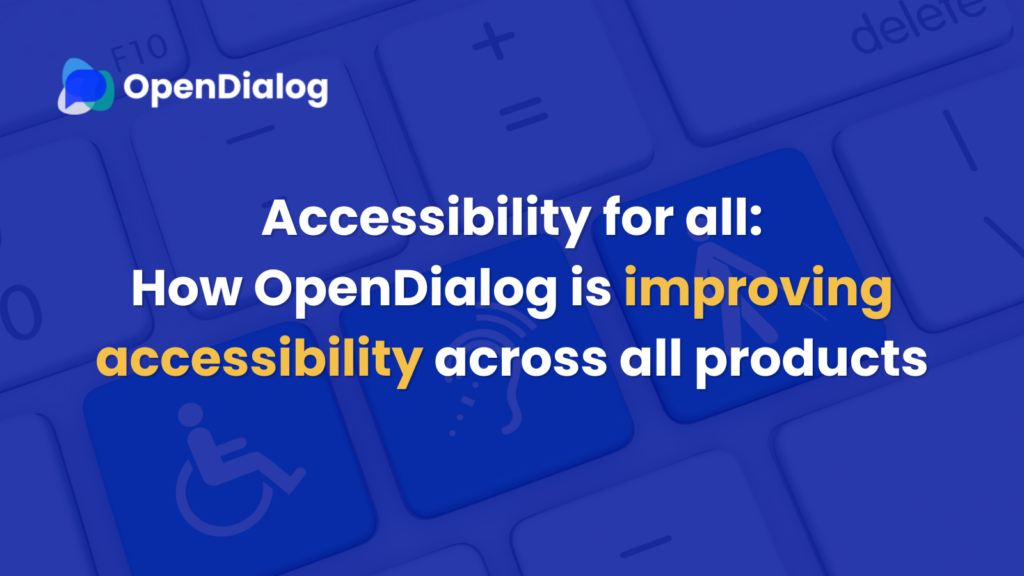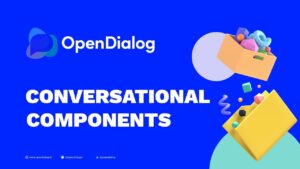OpenDialog is always striving to develop solutions that are accessible to all. Nearly 1 in 5 users in the UK and 1 in 4 users in America have a disability, meaning they experience a visual, auditory, motor, or cognitive disability. Therefore, how they experience and use digital technology, products, and services will differ from person to person, and may require further support.
How OpenDialog is improving accessibility:
OpenDialog is thrilled to announce its currently underway with a large initiative that will ensure Web Chat product achieves AA 2.2 compliance, meaning our clients within regulated industries will see increased performance for those who use assistive technology.
As well as this, OpenDialog is also working to implement:
- W3C validation (which includes a mark-up validity checker)
- Keyboard navigation functionality
- Screen reader support
- Implementing Accessible Rich Internet Applications (ARIA) attributes, such as forms elements. Enabling screen readers to announce them to users
- Stylistically compliant changes such as colour contrast amends for the default theme, minimum font size, improved heading hierarchy, and clear focus states
- Customer guidance documentation (creating accessible bots and inclusive design principles – already live on Gitbook here and here)
Development of these new functions is currently underway and testing will begin in April 2024. OpenDialog is excited to announce that it will be releasing these new accessibility features at the start of May 2024 to all users. Developed in cooperation with individuals from across the world, the Web Content Accessibility Guidelines (WCAG) provide a single shared standard of guidance and best practices that ensure digital products and services are suitably built for all users.
Currently, only 21% of European companies comply with WCAG 2.1 standards, even though a third have made digital accessibility standards a priority. While there is insufficient data to compare to the US, there is a clear disconnect between companies prioritizing accessibility and taking the steps necessary to make it a reality. OpenDialog is committed to going the extra mile to exceed accessibility standards and not just meet the minimum requirements.
To ensure products are fully accessible, they must be designed and coded to meet WCAG’s accessibility principles, these include:
- Perceivable: All users should be able to accurately see and read your website content. That means content must not exclude people with vision loss, hearing loss, and other disabilities.
- Operable: Website content should be responsive and simple to navigate for all users, for example, using keyboard-only commands to navigate a website rather than a mouse.
- Understandable: Website interfaces and information should be organized in a way that makes them easy to use, predictable to navigate, and contain language that is understandable to all users.
- Robust: Websites should be compatible with a wide range of technology, including assistive technology tools that are commonly used by users with disabilities.
The WCAG guidelines have three levels of conformance; A, AA, and AAA, with AA being the most widely accepted legal standard for digital products. While AAA is the highest level of conformance, it is also very strict and not always suitable for the types of content certain products, or desired brand experience.
AA provides an in-depth level of legal compliance and includes all that is outlined at Level A plus an extra 20 requirements (such as color contrast, logical ordering, and screen reader support). The current standard is AA 2.1, with 2.2 superseding this in October later this year.
Find out more about the OpenDialog platform here or read more about how conversational AI can improve accessibility for users.



